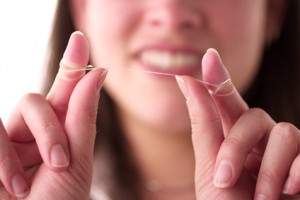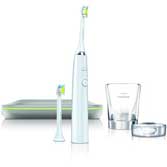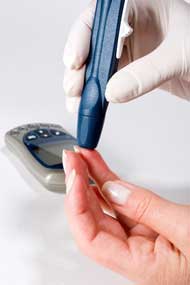 1. Celebrity Smile Makeovers
2. The Seven Myths of Teeth Whitening
3. Teeth Whitening: How White Is Too White?
4. Are Teeth Whitening Kiosks at the Mall Safe?
5. No Time for Teeth Whitening? 4 Tricks for Making Teeth Appear Whiter
6. Why Do I Have Tooth Sensitivity After a Filling?
7. Bad Breath…Top Three Causes
8. Can Sugar Free Gum Prevent Cavities?
9. “It’s Halloween! What Do I Do With All This Candy?”
10. The Truth About Porcelain Veneers
Which post did you learn the most from? Have you scheduled your dental appointment for 2012 yet?
Wishing you a healthy and prosperous New Year!
]]>
1. Celebrity Smile Makeovers
2. The Seven Myths of Teeth Whitening
3. Teeth Whitening: How White Is Too White?
4. Are Teeth Whitening Kiosks at the Mall Safe?
5. No Time for Teeth Whitening? 4 Tricks for Making Teeth Appear Whiter
6. Why Do I Have Tooth Sensitivity After a Filling?
7. Bad Breath…Top Three Causes
8. Can Sugar Free Gum Prevent Cavities?
9. “It’s Halloween! What Do I Do With All This Candy?”
10. The Truth About Porcelain Veneers
Which post did you learn the most from? Have you scheduled your dental appointment for 2012 yet?
Wishing you a healthy and prosperous New Year!
]]>
 Picture this: You’re mere moments away from your regular dental visit, anticipating the question, “Have you been brushing and flossing regularly?” In an attempt to clean whatever might be lurking between your teeth before your hygienist or dentist catches you red-handed, you franticly brush and floss hours before your appointment. Once that dreaded questions comes, you give your answer, “Yes of course I do! All the time! I love flossing!,” but get the distinct feeling that they just don’t believe you.
So, how do we dentists know if you’ve been flossing regularly?
Being dentists, we can’t stress enough the importance of regular flossing in conjunction with brushing. Flossing is important to your gum and tooth health and when you don’t floss regularly, there are very apparent consequences.
The most obvious is inflammation between the teeth. When you don’t floss regularly, plaque, bacteria, and debris sit between the teeth causing inflammation. As a result, your gums start to look pink, puffy and inflammed and bleed easily.
The second give away is cavities forming between the teeth. Brushing your teeth, no matter how good and efficient you are at it, will not clean where the teeth meet. The only way to clean in that crucial spot is to floss. If you have any cavities or the beginning stages of cavities, it indicates that flossing is a weak point in your home care regimen.
Lastly, the biggest and most obvious sign that a patient is not flossing regularly is cuts or abrasions on the gums, indicating that the patient may have just flossed or isn’t doing it correctly or efficiently. If you aren’t careful and don’t know you’re way around your teeth and mouth, it will show.
The moral of the story is simple, make flossing a part of your daily regimen! The benefits to your oral health are tremendous.]]>
Picture this: You’re mere moments away from your regular dental visit, anticipating the question, “Have you been brushing and flossing regularly?” In an attempt to clean whatever might be lurking between your teeth before your hygienist or dentist catches you red-handed, you franticly brush and floss hours before your appointment. Once that dreaded questions comes, you give your answer, “Yes of course I do! All the time! I love flossing!,” but get the distinct feeling that they just don’t believe you.
So, how do we dentists know if you’ve been flossing regularly?
Being dentists, we can’t stress enough the importance of regular flossing in conjunction with brushing. Flossing is important to your gum and tooth health and when you don’t floss regularly, there are very apparent consequences.
The most obvious is inflammation between the teeth. When you don’t floss regularly, plaque, bacteria, and debris sit between the teeth causing inflammation. As a result, your gums start to look pink, puffy and inflammed and bleed easily.
The second give away is cavities forming between the teeth. Brushing your teeth, no matter how good and efficient you are at it, will not clean where the teeth meet. The only way to clean in that crucial spot is to floss. If you have any cavities or the beginning stages of cavities, it indicates that flossing is a weak point in your home care regimen.
Lastly, the biggest and most obvious sign that a patient is not flossing regularly is cuts or abrasions on the gums, indicating that the patient may have just flossed or isn’t doing it correctly or efficiently. If you aren’t careful and don’t know you’re way around your teeth and mouth, it will show.
The moral of the story is simple, make flossing a part of your daily regimen! The benefits to your oral health are tremendous.]]>
Thanksgiving is over and the holidays are rapidly approaching. If you’re stumped about what to get your loved one this holiday season here are our favorite holiday gifts and stocking stuffers!
 Sonicare Toothbrush: This is our number one favorite home care product and the perfect gift for the holidays. An electric toothbrush is a great way to care for your teeth and electric toothbrushes with sonic action are even better. With a built in timer that also gives a gentle reminder about when to switch to the next part of the mouth, you always know if you brushed your teeth long enough. And the sonic motion gives you a better overall clean. Available at many retailers including Target.com.
Sonicare Toothbrush: This is our number one favorite home care product and the perfect gift for the holidays. An electric toothbrush is a great way to care for your teeth and electric toothbrushes with sonic action are even better. With a built in timer that also gives a gentle reminder about when to switch to the next part of the mouth, you always know if you brushed your teeth long enough. And the sonic motion gives you a better overall clean. Available at many retailers including Target.com.

 A di Alessi Rondo Toothpaste Tube Cap and Floss Dispenser: We absolutely love these little guys. They’re fun and practical, which is why they’re one of our favorite stocking stuffers to give to friends and family members. You can find the Toothpaste Cap and Floss Dispenser on newegg.com.
A di Alessi Rondo Toothpaste Tube Cap and Floss Dispenser: We absolutely love these little guys. They’re fun and practical, which is why they’re one of our favorite stocking stuffers to give to friends and family members. You can find the Toothpaste Cap and Floss Dispenser on newegg.com.
 Purse-Sized Violight Slim Sonic Toothbrush: This is an adorable toothbrush for on the go. Slim and stylish, with eight different case styles, it’s a fun toothbrush that fits perfectly in your purse. Available on Amazon.com.
Purse-Sized Violight Slim Sonic Toothbrush: This is an adorable toothbrush for on the go. Slim and stylish, with eight different case styles, it’s a fun toothbrush that fits perfectly in your purse. Available on Amazon.com.
 Personalized Turtle Tooth Fairy Box: This is a great gift for the children in your life. It comes in two colors, blue or purple, and can be personalized. Being a dentist, this is the first gift I gave my niece. And although she doesn’t have any teeth yet, it looks very cute on her dresser! This and other tooth fairy boxes are available on chasing-fireflies.com
Personalized Turtle Tooth Fairy Box: This is a great gift for the children in your life. It comes in two colors, blue or purple, and can be personalized. Being a dentist, this is the first gift I gave my niece. And although she doesn’t have any teeth yet, it looks very cute on her dresser! This and other tooth fairy boxes are available on chasing-fireflies.com
 Diabetes is a serious disease that affects how your body processes sugar. Another aspect of the disease is a reduced resistance to infection and decreased or slower healing. It is estimated that around 20 million people have diabetes but more than half of those people are undiagnosed.
There’s a dental connection too. Because of the reduced healing and increased susceptibility to infections, people with diabetes are more prone to developing oral infections as well as periodontal disease, when compared to those without diabetes, a two-fold problem for diabetics.
Diabetics are more prone to periodontal disease, which is the chronic inflammation and infection of the gums and surrounding tissues. If left untreated, it can lead to irreversible destruction of the tissues and tooth loss. Also, serious periodontal disease has the potential to affect a diabetics blood sugar control which in turn reduces healing ability and further increases the susceptibility to infection.
Diabetes can also cause other oral problems such as thrush or candidiasis (a yeast infection in the mouth) and dry mouth. This can lead to soreness, ulcers, infections and cavities.
Diabetes is a serious disease that affects many aspects of our health. Its important to keep your blood sugar under control and see a physician regularly to maintain good health. Also, you should be seeing a dentist regularly to help keep your oral health pristine and aid in maintaining good overall health.]]>
Diabetes is a serious disease that affects how your body processes sugar. Another aspect of the disease is a reduced resistance to infection and decreased or slower healing. It is estimated that around 20 million people have diabetes but more than half of those people are undiagnosed.
There’s a dental connection too. Because of the reduced healing and increased susceptibility to infections, people with diabetes are more prone to developing oral infections as well as periodontal disease, when compared to those without diabetes, a two-fold problem for diabetics.
Diabetics are more prone to periodontal disease, which is the chronic inflammation and infection of the gums and surrounding tissues. If left untreated, it can lead to irreversible destruction of the tissues and tooth loss. Also, serious periodontal disease has the potential to affect a diabetics blood sugar control which in turn reduces healing ability and further increases the susceptibility to infection.
Diabetes can also cause other oral problems such as thrush or candidiasis (a yeast infection in the mouth) and dry mouth. This can lead to soreness, ulcers, infections and cavities.
Diabetes is a serious disease that affects many aspects of our health. Its important to keep your blood sugar under control and see a physician regularly to maintain good health. Also, you should be seeing a dentist regularly to help keep your oral health pristine and aid in maintaining good overall health.]]>
 We want to cover the topics that you really want to know about.
What’s the best way of finding these topics? Going directly to the source- our patients and readers!
Send us a question or topic that you would like us to write about and we’ll address it in one of our upcoming blog posts.
And of course, if you have any personal concerns, call us at our office: (212) 245-2888.]]>
We want to cover the topics that you really want to know about.
What’s the best way of finding these topics? Going directly to the source- our patients and readers!
Send us a question or topic that you would like us to write about and we’ll address it in one of our upcoming blog posts.
And of course, if you have any personal concerns, call us at our office: (212) 245-2888.]]>
 Smoking is not only bad for your heart and lungs but your mouth too.
Here are the alarming statistics:
Smoking is not only bad for your heart and lungs but your mouth too.
Here are the alarming statistics:
- Smokers are three times more likely than non-smokers to lose all their teeth. This figure has not changed from a decade ago.
- Smoking can result in periodontal gum disease, bad breath, staining of the tongue and teeth, delayed healing and complications with certain dental procedures, plaque build-up, and a diminished sense of taste and smell.
- About 28,000 people are diagnosed with oral cancer a year and 7,200 die from oral cancer each year.
- It has been reported by the Academy of General Dentistry that a one-pack-a-day smoking habit can cost you the loss of at least two teeth every 10 years. Smoking can also lead to seven times the risk of developing gum disease compared to non-smokers.
- About eight out in ten people with mouth and throat cancers are tobacco users. On average, 40 percent of those with the disease will not survive more than five years after being diagnosed, as quoted by the American Dental Association.
- According to the American Cancer Society, it is estimated that about 8 out of 10 oral cancers could be prevented by avoiding both tobacco and alcohol use. Many of the chemicals found in tobacco can damage DNA directly. Scientists are not sure whether alcohol directly damages DNA but they have shown that alcohol helps many DNA-damaging chemicals get into cells more easily. This may be why the combination of tobacco and alcohol damages DNA far more than tobacco alone.
Frangella Dental
Offering advanced techniques in Cosmetic and General Dentistry in New York City.
200 W. 57th Street, Suite 1405
New York, NY 10019
(212) 245-2888
care@drfrangella.com




